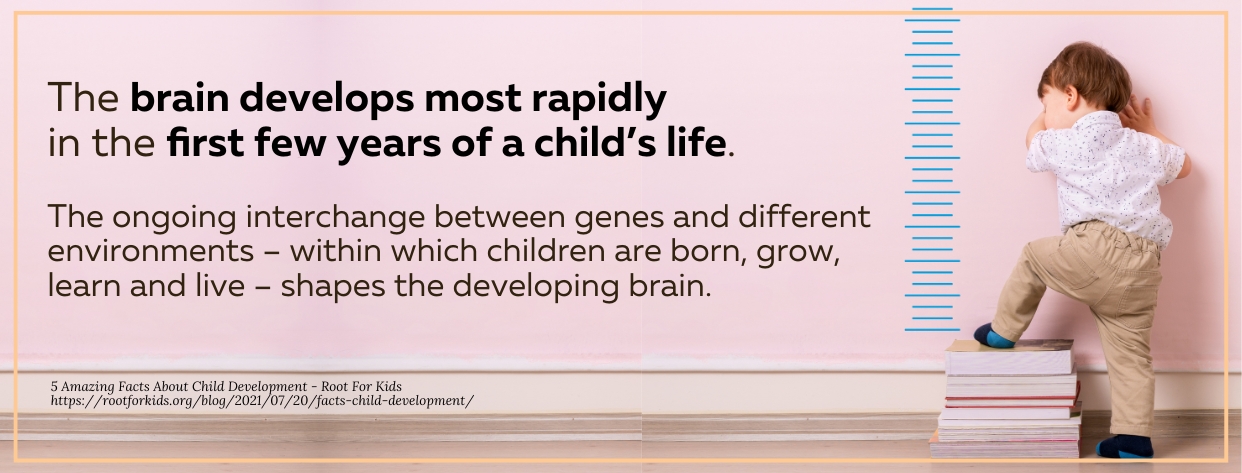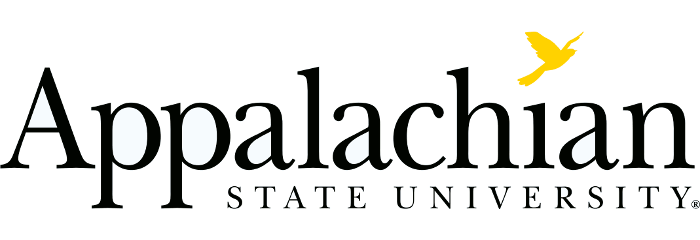Find Your Perfect School
Research shows that early childhood services, including birth to pre-kindergarten development programs and formal schooling, positively impact children’s overall well-being. Because of this, 50% of children ages 3 to 5 years old were enrolled in school in 2021 alone.
Early childhood teachers, child care center directors, social service managers, special education teachers, and other child care providers all play a crucial role in ensuring children’s lifelong well-being. They are trained to ensure that children under their care are healthy, meet other developmental milestones, communicate with their peers, develop relationships with friends, teachers, and other family members, and use their motor skills properly.
The US Labor Statistics Bureau says that the demand for childcare workers is predicted to decline by 2% from 2022 to 2032. Meanwhile, the employment landscape for preschool and childcare center directors is estimated to also decline by 3%. For those interested in working with young children and making a difference in their young lives, pursuing an online bachelor’s in child development degree will prepare them to work as preschool administrators and early childhood educators.
Most online Bachelor in Child Development programs have synthesized courses from education, psychology, development, and sociology. This provides students with a cross-curricular experience to enrich their education and improve their professional skills.
Moreover, taking child development courses will provide the best foundation for supporting children’s progress and creating curricula that meet state and industry standards for early childhood programs.
Additional Resources:
- The Best Online BS in Special Education
- Best Schools for Online Bachelor’s in Early Childhood Education
- Best Schools for Online Bachelor’s in Education Programs
Quick Summarization
An online Child Development bachelor’s degree will prepare students to become confident in their professional practice and planning for young children. It will also provide them with the knowledge and skills necessary for ensuring children’s environments, activities, and experiences are based on what is widely known and practiced.
Methodology
The main goal of this article is to provide students and parents with comprehensive information on the best colleges and universities in the United States. Because of this, the ten best online schools for Bachelor’s in Child Development listed here have been carefully selected to ensure they fit around students’ personal and professional lives.
We use the following criteria to sift through the sea of information online and help students find the best fit for their busy schedules.
- Delivered fully online or in a hybrid learning arrangement that accommodates adult students,
- Designed to be at par with on-campus degrees by emphasizing courses that mold competent future child development professionals,
- Features rigorous coursework that prepares individuals for rewarding careers in child development, emphasizing child psychology, sociology, education, and development,
- Develops undergraduates’ communication, problem-solving, critical thinking, and teamwork skills necessary for professionals who work with young children,
- Facilitated by well-credentialed instructors who hold terminal degrees and are currently in practice,
- Offers federal financial aid opportunities to help qualified online students fund their education and provide credit transfers to reduce costs,
- Provides student assistance services to ensure undergraduates can easily manage their studies and navigate their options in the field after graduation,
- Earned regional accreditation and programmatic approval from accrediting agencies, such as the National Association for the Education of Young Children (NAEYC) and the Accredited Professional Preschool Learning Environment (APPLE).
Please visit our Methodology page to learn more about our process of selecting the best schools and programs.
10 Best Online Bachelor’s in Child Development
Appalachian State University
With Appalachian State University’s Bachelor of Science in Child Development with a Concentration on Birth through Kindergarten, undergraduates will learn to provide learning and development opportunities to young children and their families. Through this online degree program, students will acquire the necessary knowledge and tools to help them guide children from infancy through kindergarten.
This online degree program in Child Development will prepare students for successful careers. They will be able to explore the different roles and responsibilities of a child development professional and engage and foster learning.
Throughout the program, Child Development majors must have various student teaching experiences at a public school in North Carolina. Upon reaching the last semester, they will also have a full-time internship, working with the department to choose their student teaching location.
Course requirements for Birth through Kindergarten Concentration include:
- Introduction to Learners, Teachers, and Schools
- Foundations of Educational Equity
- Child Development: Birth-2 Years
- Child Study and Guidance
- Administration of Early Childhood Programs
Once students complete at least 30 semester hours, which should include credit for RC 1000, and have obtained at least a 2.0 GPA, they may be eligible to apply for admission to an undergraduate teacher education program. But first, they must furnish an application to the Dean’s Office in the Reich College of Education before they can declare their major. They must also complete the speech prerequisite.
Fort Hays State University
Fort Hays State University’s Bachelor of General Studies Degree with a Concentration in Child Development is specially designed for online degree seekers, parents, early childcare providers, and daycare providers. This program is offered through a diverse liberal arts program with an area of concentration in Child Development and general education requirements.
The Child Development concentration program takes 21 semester hours to complete. This covers topics including child growth and development, which deals with children’s social, physical, emotional, cognitive, language, and moral aspects from birth up to school-age years. This also provides them with know-how on cultural issues that affect child development and a broad background in the appropriate literature.
Child Development majors will also be taught to plan, implement, and set up effective discipline and teaching strategies to maximize students’ on-task time. They will also learn about teacher accountability and responsibility in running an effective classroom, ensuring that the right principles are applied to all grade levels and settings.
Additionally, undergraduates will be provided with information on special education programs, including placement individual education program plans, colleague consultation and collaboration, legal and ethical perspectives, parent conferencing, and pre-referral.
Course requirements for Fort Hays State University’s Bachelor of General Studies – Concentration in Child Development include:
- Diverse Learners
- Human Growth & Development
- Educating Exceptional Students
- The Effective Classroom
- Introduction to Instructional Technology
Pacific Oaks College
Pacific Oaks College offers a Bachelor of Arts in Early Childhood Education to equip undergraduates with the teaching methodology and skills necessary to develop and implement nurturing and optimal learning environments for children from birth through eight years old. This program takes 121 credits to complete.
The BA in Early Childhood Education (ECE) offered by Pacific Oaks College teaches students the crucial principles and theories of pedagogy and child development. Students will be provided with multiple supervised learning experiences to give them plenty of opportunities to apply their knowledge. Aside from that, they will be taught various effective strategies that will allow them to facilitate growth and development in children’s cognitive development and motor skills.
This Early Childhood Education program teaches students to tailor learning to children’s cultural needs and to appreciate what every child and family has to offer. It also tackles the fundamental principles of psychology in the learning and teaching process. Moreover, this degree provides students with fieldwork, practicum experience, and coursework for different child development permits in California.
ECE majors will also be exposed to inclusive programs that cater to young children with or without special needs. This degree also gives them the necessary knowledge and skills to establish and maintain collaborative and respectful relationships between schools/centers, families, and communities today.
University of Massachusetts Amherst
The Bachelor of Arts in Interdisciplinary Studies – Children’s Learning & Development concentrations offered by the University of Massachusetts Amherst are designed for adults who are already employed or interested in programs serving young children and their families. This Interdisciplinary Studies program will help students gain the knowledge and skills needed to build a successful career that helps improve children’s emotional, social, and intellectual growth.
The Children’s Learning and Development concentrations will help students advance in their careers in youth and family programming, child advocacy, education, and administration. This will also help them prepare for provisional licensure in Massachusetts.
The University of Massachusetts Amherst allows its undergraduates to tailor-fit their degree concentrations through online courses and optional hybrid offerings to work around their busy schedules. Enrollees with up to 105 credits for prior learning or coursework can accelerate this degree to save time and resources.
Course requirements for the University of Massachusetts Amherst’s BA in Interdisciplinary Studies with Children’s Learning and Development Concentrations include:
- Introduction to Education: Schooling in the United States
- Social Diversity in Education
- Young Children in Families and Schools
- Principles and Methods of Reading/Language in Elementary Schools
- Leadership & Organizational Behavior: Theory and Practice for Counselors, Educators, and Mental Health Professionals
Point Loma Nazarene University
Point Loma Nazarene University’s Bachelor of Arts in Child Development is ideal for prospective students who are fascinated by human development and passionate about helping children reach their full potential. The BA in Child Development program is perfect for those with college credits who have not earned a bachelor’s degree yet. On top of that, students can tailor this program to accommodate other commitments and complete the degree in 15 months.
The goal of PLNU’s Child Development program is to provide undergraduates with a robust understanding of atypical and typical development and its influence in meeting young children’s and their families’ needs. This online degree program will also shape students into becoming champions for children by studying the complex social and family systems around them.
PLNU offers a hybrid format through partnerships with community colleges around San Diego County. This ensures that Child Development majors can have face-to-face meetings with professors two nights a week at a campus near them. It also offers online learning for those who want more flexibility and freedom.
At the end of the online Child Development degree program, learners can discuss scientific research better to grasp different philosophical views of growth and development, both current and historic. They will also effectively evaluate the effects of culture and society upon family types, microsystems, and the subsequent macrosystems with which they co-exist.
Program requirements for PLNU’s BA in Child Development include:
- Early Childhood Curriculum and Learning Theory
- Child and Adolescent Nutrition and Health
- Development of Children with Exceptionalities
- Parent Education and Family Development
- Developmental Curriculum, Experiences, and Practices for Young Children
Oklahoma State University
Oklahoma State University is one of the best when it comes to a Bachelor of Science in Early Child Care and Development degree program. This online degree in Early Child Care and Development prepares students with the necessary know-how and skills to promote positive child development in various work settings, including childcare centers and homes, infant and toddler programs, preschool programs, military child development/care centers, and Head Start programs.
OSU’s BS in Early Child Care and Development program can be completed mostly online. However, on-campus classroom observations and interactions may be required for practicum purposes. Its curriculum was designed by early childcare experts from seven universities and focused on guidelines and ethics related to the practice.
This online degree program provides students with program administration and classroom management experiences. Early Child Care and Development majors must obtain certification in First Aid or CPR and complete a background check before enrolling in Practicum I.
Course requirements for those enrolled in BS in Early Child Care and Development include:
- Child Development – Birth to 3
- Professional Development for Early Childhood Educators
- Understanding and Adapting to Developmental Differences
- Administration and Supervision in Early Childhood Settings
- Diversity in the Lives of Young Children and Families
University of Washington
The Bachelor of Arts in Early Childhood & Family Studies Teaching and Learning (ECFS) offered by the University of Washington is aimed at those who want to study early childhood development, family studies, and early learning from various perspectives across different disciplines. This program is also an excellent pathway for those who want to pursue graduate studies in child and family studies, education, and other related fields.
The ECFS Teaching and Learning program will equip undergraduates with the necessary tools and skills that will help them succeed in careers in childcare, parent and family support, early learning, social/mental health services, and parent and family support and education. Students will also be guided in using the latest research materials to understand how to facilitate optimal child development and become change agents.
Learners will also be trained to become confident and prepared in pedagogical approaches to early childhood education. They will also need to participate in community-based learning with teachers in childcare centers or preschool classrooms every quarter once they reach their junior and senior years.
Courses for the University of Washington’s BA in ECFS Teaching and Learning program include:
- Exploring the Early Learning Profession
- Family & Community Influences on the Young Child
- Parenting and Child Development: Influences of Poverty, Immigration, and Culture in the Earliest Years of Life
- Understanding Early Childhood & Family Studies Research
- Engaging Interactions & Environments
Grand Canyon University
Grand Canyon University’s Bachelor of Science in Early Childhood Education current curriculum emphasizes birth through grade three education, preparing them to be qualified to work as daycare providers or preschool teachers.
GCU’s BS in Early Childhood Education program offers courses that cover topics, including teaching methodologies, instructional strategies, theories of early childhood growth and development, assessment techniques, and the impact of family and cultural diversity on young children.
Aside from that, this online bachelor’s degree offers several practicum opportunities throughout its coursework and requires teaching components with two placements: in birth through preschool and 15-week birth through grade three teaching experience.
Once they complete this degree program, only will students be able to pursue teacher certification, which will also require state exams, practicum hours, and an institutional recommendation from the university.
By the end of the program, BS in Early Childhood Education majors will develop a strong foundation that will help them successfully work with young students of various intellects, cultures, and age groups. They will also be able to use their critical thinking skills to solve issues that impact teaching and learning in lower grades.
Additionally, they will learn about classroom engagement and management techniques, instruction methods for children with exceptionalities, and developing a curriculum for math, science, social studies, health, language, and arts.
Core courses for GCU’s Early Childhood Education program include:
- Early Childhood Foundations and the Teaching Profession
- Methods of Structure English Immersion for Early Childhood Education
- Instructional Planning for Young Children
- Early Childhood Phonics and Science Reading Development
- Family, Community & Cultural Awareness in Early Childhood
West Virginia University
The Bachelor of Science in Child Development and Family Studies (CDFS) program offered by West Virginia University prepares undergraduates to work with young children and their families from birth to eight years old. Students will complete hands-on experiences and internships in various settings, serving children and their families as parent/family educators, nursery school teachers, family support workers, and Head Start teachers.
The CDFS program offers two curriculum options: Family and Youth Studies and Birth through 5/Pre-Kindergarten. The Family and Youth Studies program will teach students about human growth and development, human sexuality, youth concerns and issues, family issues, interactions, and related topics. Undergraduates will also learn about different strategies for successfully working with young children, adolescents, and their families at community centers.
The Birth through 5/Pre-Kindergarten concentration will teach students about young children’s intellectual, emotional, social, and physical development in the family and preschool contexts. It will also give them the skills to effectively implement the right curriculum and developmental and performance assessments. Additionally, students can prepare educational activities according to children’s ages.
Course requirements for all areas of emphasis include:
- Infant Development
- Infant Toddler Language and Literacy
- Early Socio-Emotional Development
- Literacy and the Young Child
- Differentiated Instruction for Young Children with Special Needs
Southern New Hampshire University
The web-based Bachelor of Arts in Psychology with a Concentration in Child and Adolescent Development offered by Southern New Hampshire University prepares students to help make a difference in the lives of young children. This program will walk students through the key developmental stages, giving them a deeper understanding of the human experience.
Through this Child and Adolescent Development concentration program, students will develop the understanding, techniques, and skills needed to work with children of various ages in various settings. Plus, each Child Development major acquires what it takes to teach, innovate, create, and become a leader in the child development field, including as a special education teacher. This program also equips students with the tools to work in several fields outside of education, such as healthcare and social services.
Students will attend classes with no set schedule and have 24/7 access to the online classroom and learning resources to help them reach their professional and personal goals.
Course requirements for the Child and Adolescent Development concentration program include:
- Child Development
- Adolescent Development
- Psychology of Individual Differences and Special Needs
- Counseling Process and Techniques
- Social Development: Child and Adolescent
This program will also provide Child and Adolescent Development majors the opportunity to pursue a Certificate of Data Literacy in Psychology, a 12-credit certificate program embedded in the BA in Psychology program to help students acquire the know-how and skills necessary for synthesizing data and theory and translate findings to professional and academic audiences.
Average Median Wages for the Top Careers Requiring a Bachelor’s in Child Development
Most childcare-related professions require an entry-level education, such as a bachelor’s degree. With an online Bachelor’s in Child Development, degree holders will be able to succeed in the following careers:
- Preschool Teachers or Directors – $52,217
- Child Life Specialists – $60,352
- Head Start Teachers – $39,733
- Early Intervention Specialists – $53,104
- Cognitive Behavioral Therapists – $56,014
- Youth Ministry Leaders – $44,908
- Parent Educators – $78,028
- Foster Care Providers – $66,147
- Social Service Workers (for children and adolescents) – $47,967
Frequently Asked Questions
How long does finishing an online bachelor’s in Child Development take?
An online bachelor’s in Child Development typically takes four years to complete, equivalent to 120 credits.
Are Child Development undergraduates able to apply for financial aid?
All college students, whether enrolled on campus or online, are eligible to receive financial aid. All they need to do is submit their Free Application for Federal Student Aid (FAFSA) to get financial assistance for college or career school.
The deadline for Federal Student Aid applications for the school year 2023-2024 will be on June 30, 2024.
What are the licenses or certificates required for child development professionals?
While teachers who want to work in public schools must have a license from their state’s education department, private school educators sometimes require certification from independent licensing agencies. These include the following:
- National Private School Accreditation Group, INC. offers nationwide certification programs for private school teachers and administrators. Those who undergo the programs will receive personalized certificates, letters of confirmation, a Code of Ethics document, and confirmation from third parties.
- Child Development Associate (CDA) Program is the most widely recognized and valued credential teachers or other professionals in early childhood development must possess. The Council for Professional Recognition offers this program, providing high-quality training to strengthen educators’ knowledge and practices.
- CPR, First Aid, and AED Certifications are required for daycare or childcare professionals. It can be obtained through the American Red Cross to ensure they know what to do in an emergency involving young children. Interested individuals can complete this certification either in person or online.
- Early Childhood Education (ECE) Certification requires 180 hours of online professional development for ECE professionals. It has eight instructional units with courses in Professionalism; Safe and Healthy Environments; Principles of Child Growth and Development; Motor, Language, and Cognitive Development; Social and Emotional Development; Program Management; Principles of Assessment; and Relationships with Families.
- Newborn Care Specialist (NCS) Certification should be obtained by child development professionals interested in working with newborns. This certification program ensures that all newborn care specialists adhere to all industry standards and regulations and are current with their knowledge and skills.
Where can Child Development degree holders work aside from schools and community centers?
Graduates with a Child Development degree will always have an edge in industries that work with young children, including newborns and children with special needs. These include the following settings:
- Head Start (programs that support children from birth to age five)
- Non-profit agencies
- Hospitals and healthcare agencies
Should graduates with a Bachelor’s in Child Development pursue a master’s degree?
The demand for early childhood education specialists has grown in recent years. This is because early childhood services can provide children with many benefits, even in adulthood. Because of this, earning a Master’s in Child Development will ensure a brighter future for those passionate about improving children’s lives.
With a Master’s degree, child development professionals can become preschool directors, instructional coordinators, intervention specialists, child life specialists, or social workers.
Key Points to Ponder
- An online bachelor’s in Child Development degree program is ideal for those wanting to work in early childhood education.
- An online bachelor’s in Child Development equips undergraduates with the confidence, knowledge, and skills to work successfully with young children and families during a child’s developmental stages.
- An online bachelor’s in Child Development is perfect for adults who need to juggle their time between school and work because online classes are usually small, allowing instructors to provide more attention to each student.











